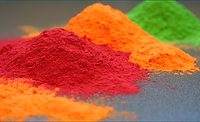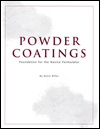The Powder Coating Research Group Partners With The Global Alliance to Eliminate Lead Paint

COLUMBUS, OH — The Powder Coating Research Group, Columbus, Ohio, has become a partner in the international effort to eliminate lead-based paint throughout the world. The Global Alliance to Eliminate Lead Paint is a voluntary collaborative initiative to catalyze efforts to achieve international goals of preventing children's exposure to lead from paint and minimizing occupational exposures to lead paint. Its broad objective is phasing out the manufacture and sale of paints containing lead to eventually eliminate the risks that such paints pose.
The president of PCR Group, Kevin Biller, explained, “After traveling the world in my role as a powder coating advocate, I found that many developing nations suffer the bane of exposure to lead-containing coatings.” He further stated, “Not only is the workforce in paint manufacturing facilities exposed to unacceptably high levels of lead and other heavy metals, but consumers, including children and aftermarket personnel are regularly exposed through toxic scenarios such as chipping paint and the refurbishment of coated items.”
The Global Alliance to Eliminate Lead Paint is a joint effort by the World Health Organization and the United Nations Environmental Programme. Major paint suppliers like AkzoNobel and Jotun are partners as well as a number of coatings trade groups such as the American Coatings Association, British Coating Federation and ABRAFATI.
The Lead Paint Alliance is guided by an Advisory Council chaired by the U.S. EPA and consists of government representatives from Colombia, Republic of Moldova, Kenya, Thailand, the International Pollutants Elimination Network (IPEN), Health and Environmental Alliance (HEAL), the American Bar Association Rule of Law Initiative (ABA ROLI), the World Coating Council, AkzoNobel, and Pacific Paint (Boysen) Philippines.
The negative impact of lead exposure to humans cannot be overstated. Exposure to lead occurs when paint flakes off window frames, doors, playground equipment and other consumer items. Lead-containing paint particles can then poison groundwater, soil and the atmosphere. Eventually, humans ingest lead through food, drinking water and the respiratory system. Even trace amounts of lead cause serious health issues in children, including significant cognitive impairment, loss of appetite, stunted growth, poor language development, sluggishness, and reduced weight. The concentration is accumulative, as the body does not easily metabolize lead.
The economic impact of health impairment from lead exposure has been estimated to be nearly $135 billion in Africa. The cost to switch to non-lead-based paints is miniscule in comparison for paint makers and their customers.
PCR Group is in the process of drafting a white paper that identifies viable pigment replacements for lead-based colorants commonly used by paint manufacturers in many developing nations. Biller will be presenting these options at the North African Coatings Congress being held in Casablanca in October 2020.
Looking for a reprint of this article?
From high-res PDFs to custom plaques, order your copy today!








